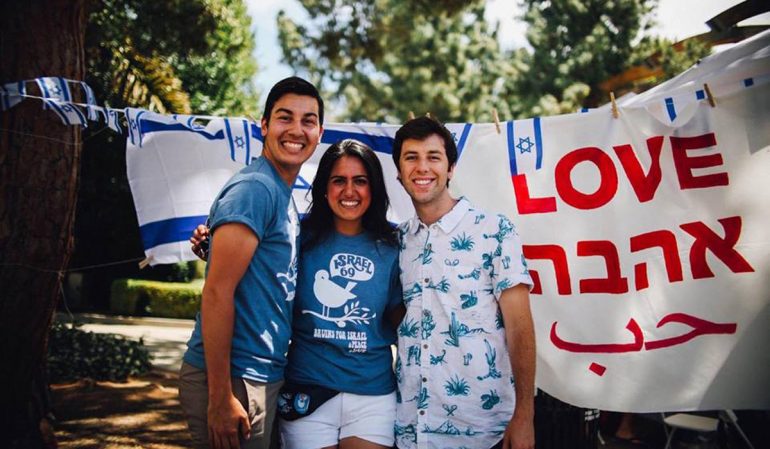Photo courtesy of BFI
“Why do you consider yourself a Zionist?”
Recently I have been bombarded by this question from all directions. At UCLA and beyond, those around me genuinely do not understand why this Christian, Armenian-Lebanese student has such strong feelings toward the Jewish State of Israel. Those who ask are, thankfully, not asking disgustedly or rhetorically. Instead, they are genuinely curious to hear my response. Typically, those who ask do not have a grasp on what Zionism is, or they have an extreme definition that equates Zionism only to colonial oppression and human rights violations.
I, and many of my peers, define a Zionist as someone who believes that a state for the Jewish people in the region of Israel should exist as a safe haven for a historically oppressed and hated people. Since the State of Israel now does exist (regardless of the extreme denial by much of the Middle East and by many college students), I would extend the definition of a Zionist today to someone who cares for Israel and the Israeli people so much that they are willing to disagree with certain actions that go against the ideals upon which the state was founded. Just like one can care for America but disagree with the administration of a particular era, so too one can support Israel even while disagreeing with its actions. Zionism is not a single brushstroke but a complex painting with many different colors.
My care for the Jewish nation stems not only from my religious convictions but also from the Armenian cultural and historical parallels to the Jewish people. As an Armenian myself, I understand what it means to be a religious minority in the Middle East. I understand what it means to be surrounded by nations who don’t want you to exist because you differ religiously. I understand what it means to be a people of diaspora, spread to every corner of the Earth. I understand what it means to be a people who suffered a catastrophic, systematic, real genocide that attempted to make our people nothing more than an exhibit in a museum. The difference is that after being dispersed, Armenians were accepted by their host countries and societies, unlike the Jewish people. This reality lead to the need for a homeland and a safe haven more than ever before.
Along with my understanding of the Jewish people and the need for a homeland, I also owe my very own existence to the State of Israel. As a Christian Lebanese, I am indebted to the Israelis who aided, trained and supplied the Phalange (Christian Lebanese Forces) during the Lebanese Civil War. Without Israeli support, the Christian Lebanese Army would certainly have been outmatched by the opposing Muslim Lebanese and their alliance with the Syrian Army and PLO. If it was not for the Israeli aid and eventual full scale intervention on behalf of the Christian Lebanese, my family, like many other Christian Lebanese families, most likely would not have made it out alive. And I, therefore, would never have been born. Israel stood with their fellow religious minority, for which I am immensely grateful.
Because I’ve had the opportunity to travel to Israel twice in recent years, I’ve been able to see first-hand the overwhelming misrepresentation of the State of Israel and everything associated with it. I’ve decided that although I, understandably, do not agree with everything the Israeli government does, I cannot sit back and watch as the state of the people with whom I share so much is lied about, wrongfully slandered and vehemently delegitimized. Unfortunately, this defamation has lead to Jews all across the world — and especially students on college campuses — to become targets of anti-Israel rhetoric and victims of anti-Semitic hate.
This issues surrounding Israel have become so politicized and polarized that people ignore the lives of the actual human beings involved. The misrepresentation and polarization cause people to violently hate other people they don’t know and have never met. There are many things said and reported upon when it comes to Israel that are true but not necessarily the entire truth. When some try to simplify the issues surrounding Israel and are only exposed to one viewpoint, it becomes easy to hate the “other.” When passions are high and emotions are preyed upon, it is easy to forget that the “others” are humans too. Zionism started as a means to protect human beings who faced immense, long-suffering oppression, violence and persecution. As a member of a people who also endured so much suffering at the hands of the world, my intention is just the same.
It is my belief that humans are all created by God in the image of God. As a Zionist, I feel responsible to speak out against violence-inciting extremism and polarization that dehumanize and cause destruction. As a Zionist, I do not speak on behalf of, or in support of a government. As a Zionist, I speak to try to bring peace to people who have suffered at the hands of hate and dehumanization.

